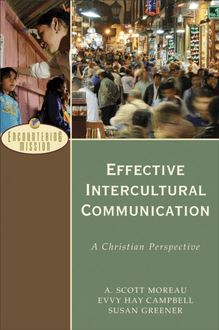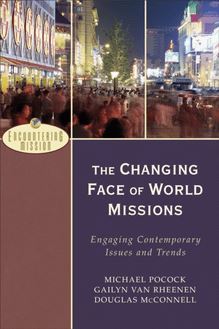-
 Univers
Univers
-
 Ebooks
Ebooks
-
 Livres audio
Livres audio
-
 Presse
Presse
-
 Podcasts
Podcasts
-
 BD
BD
-
 Documents
Documents
-
- Cours
- Révisions
- Ressources pédagogiques
- Sciences de l’éducation
- Manuels scolaires
- Langues
- Travaux de classe
- Annales de BEP
- Etudes supérieures
- Maternelle et primaire
- Fiches de lecture
- Orientation scolaire
- Méthodologie
- Corrigés de devoir
- Annales d’examens et concours
- Annales du bac
- Annales du brevet
- Rapports de stage
La lecture à portée de main
Vous pourrez modifier la taille du texte de cet ouvrage
Découvre YouScribe en t'inscrivant gratuitement
Je m'inscrisEncountering Theology of Mission (Encountering Mission) , livre ebook
Découvre YouScribe en t'inscrivant gratuitement
Je m'inscrisEn savoir plus
Vous pourrez modifier la taille du texte de cet ouvrage
En savoir plus

Description
Sujets
Informations
| Publié par | Baker Publishing Group |
| Date de parution | 01 mai 2010 |
| Nombre de lectures | 0 |
| EAN13 | 9781441212337 |
| Langue | English |
Informations légales : prix de location à la page 0,0893€. Cette information est donnée uniquement à titre indicatif conformément à la législation en vigueur.
Extrait
E NCOUNTERING T HEOLOGY OF M ISSION
A. Scott Moreau, series editor
Also in the series:
Introducing World Missions: A Biblical, Historical, and Practical Survey
A. Scott Moreau, Gary R. Corwin, and Gary B. McGee
The Changing Face of World Missions: Engaging Contemporary Issues and Trends
Michael Pocock, Gailyn Van Rheenen, and Douglas McConnell
Encountering Missionary Life and Work: Preparing for Intercultural Ministry
Tom Steffen and Lois McKinney Douglas
Christianity Encountering World Religions: The Practice of Mission in the Twenty-first Century
Terry Muck and Frances S. Adeney
© 2010 by Craig Ott and Stephen J. Strauss
Published by Baker Academic a division of Baker Publishing Group P.O. Box 6287, Grand Rapids, MI 49516-6287 www.bakeracademic.com
Ebook edition created 2011
All rights reserved. No part of this publication may be reproduced, stored in a retrieval system, or transmitted in any form or by any means for example, electronic, photocopy, recording without the prior written permission of the publisher. The only exception is brief quotations in printed reviews.
ISBN 978-1-4412-1233-7
Library of Congress Cataloging-in-Publication Data is on file at the Library of Congress, Washington, DC.
Unless otherwise indicated, scripture quotations are from the Holy Bible, New International Version®. NIV®. Copyright © 1973, 1978, 1984 by Biblica, Inc.™ Used by permission of Zondervan. All rights reserved worldwide. www.zondervan.com
Scripture quotations labeled KJV are from the King James Version of the Bible.
Scripture quotations labeled NASB are from the New American Standard Bible®, copyright © 1960, 1962, 1963, 1968, 1971, 1972, 1973, 1975, 1977, 1995 by The Lockman Foundation. Used by permission. www.lockman.org
Scripture quotations labeled NRSV are from the New Revised Standard Version of the Bible, copyright © 1989, by the Division of Christian Education of the National Council of the Churches of Christ in the United States of America. Used by permission. All rights reserved.
Contents
Preface
Abbreviations
Introduction
Part 1 Biblical Foundations of Mission
1 God and the Nations in the Old Testament
2 God and the Nations in the New Testament
3 The Justification of Mission: Missio Dei
4 The Purpose and Nature of Mission
5 The Task of Missions: Convictions and Controversy
6 The Task of Missions: Convergence and Conclusions
Part 2 Motives and Means for Mission
7 The Motivation for Missions
8 The Church and Mission
9 The Missionary Vocation
10 Spiritual Dynamics and Mission
Part 3 Mission in Local and Global Context
11 Contextualization and Mission
12 Christian Encounter with Other Religions: Toward an Evangelical Theology of Religions
13 The Necessity of Mission: Three Uncomfortable Questions
References
Preface
T he theology of Christian mission has undergone, in David J. Bosch’s analysis, paradigmatic shifts throughout the history of the church. However, none of them has been as far reaching as those of the twentieth century. Understandings of truth, biblical authority, the nature of non-Christian religions, the role of the local church, the place of social justice, spiritual dynamics, the growth of the majority world church, and many other concerns have evolved and evoked dramatic rethinking of mission in many different directions. There has seldom been a greater need for biblical clarity and global awareness regarding the mission of the church as it moves into the twenty-first century.
Our goal is to provide the reader with an overview of these developments and deliver a fresh, biblical reframing of our understanding of mission. We thematically take up the central questions of mission and examine them from a biblical, historical, and contemporary perspective, taking into account current developments at both the local and the global levels. This book deals with these themes in three parts: (1) Biblical Foundations, (2) Motives and Means for Mission, and (3) Mission in Global and Local Context.
Though not always explicit, we have sought to link theology of mission more directly with ecclesiology and eschatology. Our conviction is that the church as community of the kingdom is both the primary agent as well as the chief fruit of the missio Dei in this age. Furthermore, only a theology of mission that is rightly framed eschatologically will give proper place to the kingdom of God. The church as God’s people lives as instrument, witness, sign, and anticipation of the kingdom that is already present but only to come in fullness upon Christ’s return. The cross remains the fulcrum of history, the gospel the message of hope, and the Spirit the power of mission.
We make no apology that biblical authority is the North Star by which we have sought to navigate these turbulent waters. We are evangelical in our orientation but hope that these pages will be of value to all, and we have sought to treat divergent viewpoints with fairness. Our approach to this task is not that of strictly armchair theologians; rather, each author brings many years of practical experience in cross-cultural mission, which has tempered our scholarship. Craig Ott has authored the introduction and chapters 1–9, Steve Strauss chapters 10, 11, and 13, and Timothy Tennent chapter 12. Translations of quotations from non-English original sources are our own. Bible quotations, unless otherwise stated, are from the New International Version. Apart from references to the Divinity, proper names, and use in direct quotations, we have chosen to use lower case for terms such as the church (whether referring to the church local or the church universal), scripture , and the kingdom of God . The term gospel is capitalized only when referring to the four Gospels in the New Testament. Italics within quotations are as set in the original unless noted otherwise.
Most chapters provide teachers and readers with sidebars and case studies intended to stimulate further reflection, the formation of the learner’s own viewpoint, or practical application of the subject at hand. These may be used for group discussion, class interaction, or independent study.
We are grateful to those who have read all or portions of the manuscript and given us valuable feedback. These include among others Stephen Bevans, John Cheong, George Hunsberger, David Ngaruiya, Jim Reapsome, Eckhard Schnabel, Ed Stetzer, and Tite Tiénou. Scott Moreau, series editor, and Jim Kinney of Baker Academic have demonstrated indefatigable patience as well as professional expertise in guiding this work to completion. We’re also grateful for the research and editing assistance of Axel Fachner, Ben Stevens, and Amy Hay. Not least, we thank our spouses, who have patiently and faithfully supported us in this undertaking.
Our hope and prayer is that this volume will stimulate students, missionaries, academics, and ordinary Christians to a deeper understanding of and more faithful participation in the missio Dei .
Abbreviations AG Vatican Council II, Ad Gentes CRESR Consultation on the Relationship between Evangelism and Social Responsibility (sponsored by LCWE) CWME Commission on World Mission and Evangelism ESA Evangelicals for Social Action GOCN Gospel and Our Culture Network IMC International Missionary Conference LCWE Lausanne Committee for World Evangelization LG Vatican Council II, Lumen Gentium LMS London Missionary Society LOP Lausanne Occasional Paper MM Manila Manifesto (from Lausanne II) RM Pope John Paul II, Redemptoris Missio (encyclical letter) SLSW strategic-level spiritual warfare SPCK Society for Promoting Christian Knowledge SPG Society for the Propagation of the Gospel WCC World Council of Churches WEA World Evangelical Alliance WEF World Evangelical Fellowship (later renamed WEA)
Introduction
T HE I MPORTANCE OF T HEOLOGY OF M ISSION T ODAY
The living God, maker of heaven and earth, lover of our soul, the eternal Father, sends his people on a mission in this world. Having redeemed us by the blood of his Son, having given us his message in the Bible, and having equipped us with the Holy Spirit, he sends us to become his instruments for fulfilling his purposes in history. The more one contemplates this thought, the more awe inspiring and overwhelming it becomes; the deeper our sense of privilege, unworthiness, and inadequacy, the greater the urgency to make sure that we get it right. Theology of mission can be reduced to the wonderful yet challenging task of unpacking just what that means to be sent by God on his assignment into the world.
And yet few topics evoke such a wide range of emotions, commitments, and convictions as Christian mission. Some Christians are enthusiastically and sacrificially committed to mission. They see it as the central calling of the church. Others become fearful or even hostile at the thought of mission, seeing it as arrogant or a threat to world peace. “Christian mission” is for some synonymous with a colonialist mentality, destruction of traditional cultures, and religious intolerance.
Even among mission advocates, opinions differ widely when they attempt to define the central task of mission. Is mission primarily a matter of preaching the gospel to those who have never heard? Or does mission include feeding the hungry? Perhaps mission should focus more on social justice and fighting “structural sin”? Or is mission simply a matter of quietly living out a life of integrity and love wherever one is being a “silent witness”? Numerous other questions and issues swirl about the term mission : Is there still even a need or justification for sending missionaries? Who is a “missionary”? What right do Christians have to suggest that Christianity is in any way superior to other religions? What about those who have never heard the gospel? Do we need better strategies or more spiritual power? The list goes on.
These questions only illustrate the confusion that surrounds the topic of Christian mission. Sinc
-
 Univers
Univers
-
 Ebooks
Ebooks
-
 Livres audio
Livres audio
-
 Presse
Presse
-
 Podcasts
Podcasts
-
 BD
BD
-
 Documents
Documents
-
Jeunesse
-
Littérature
-
Ressources professionnelles
-
Santé et bien-être
-
Savoirs
-
Education
-
Loisirs et hobbies
-
Art, musique et cinéma
-
Actualité et débat de société
-
Jeunesse
-
Littérature
-
Ressources professionnelles
-
Santé et bien-être
-
Savoirs
-
Education
-
Loisirs et hobbies
-
Art, musique et cinéma
-
Actualité et débat de société
-
Actualités
-
Lifestyle
-
Presse jeunesse
-
Presse professionnelle
-
Pratique
-
Presse sportive
-
Presse internationale
-
Culture & Médias
-
Action et Aventures
-
Science-fiction et Fantasy
-
Société
-
Jeunesse
-
Littérature
-
Ressources professionnelles
-
Santé et bien-être
-
Savoirs
-
Education
-
Loisirs et hobbies
-
Art, musique et cinéma
-
Actualité et débat de société
- Cours
- Révisions
- Ressources pédagogiques
- Sciences de l’éducation
- Manuels scolaires
- Langues
- Travaux de classe
- Annales de BEP
- Etudes supérieures
- Maternelle et primaire
- Fiches de lecture
- Orientation scolaire
- Méthodologie
- Corrigés de devoir
- Annales d’examens et concours
- Annales du bac
- Annales du brevet
- Rapports de stage














